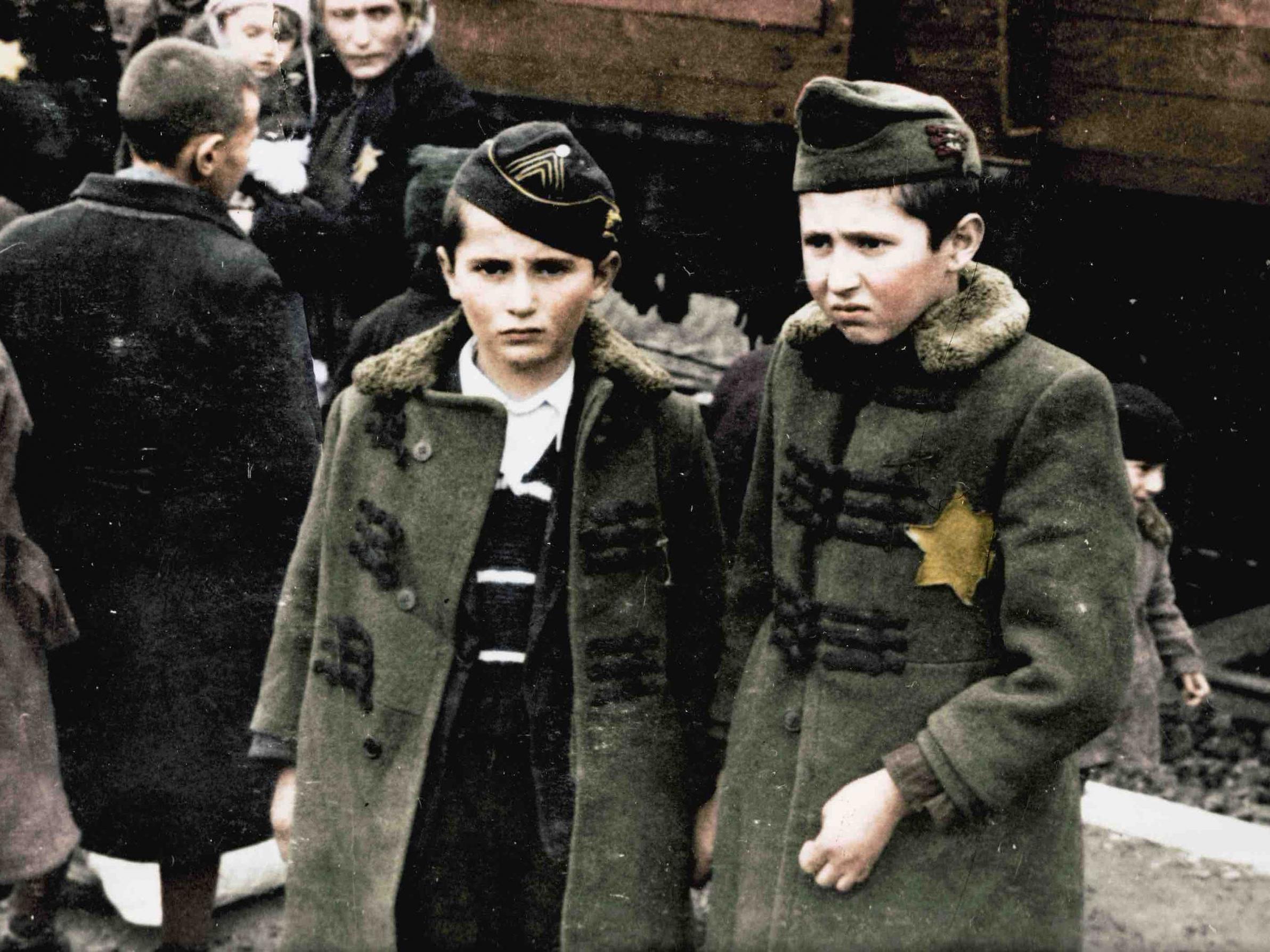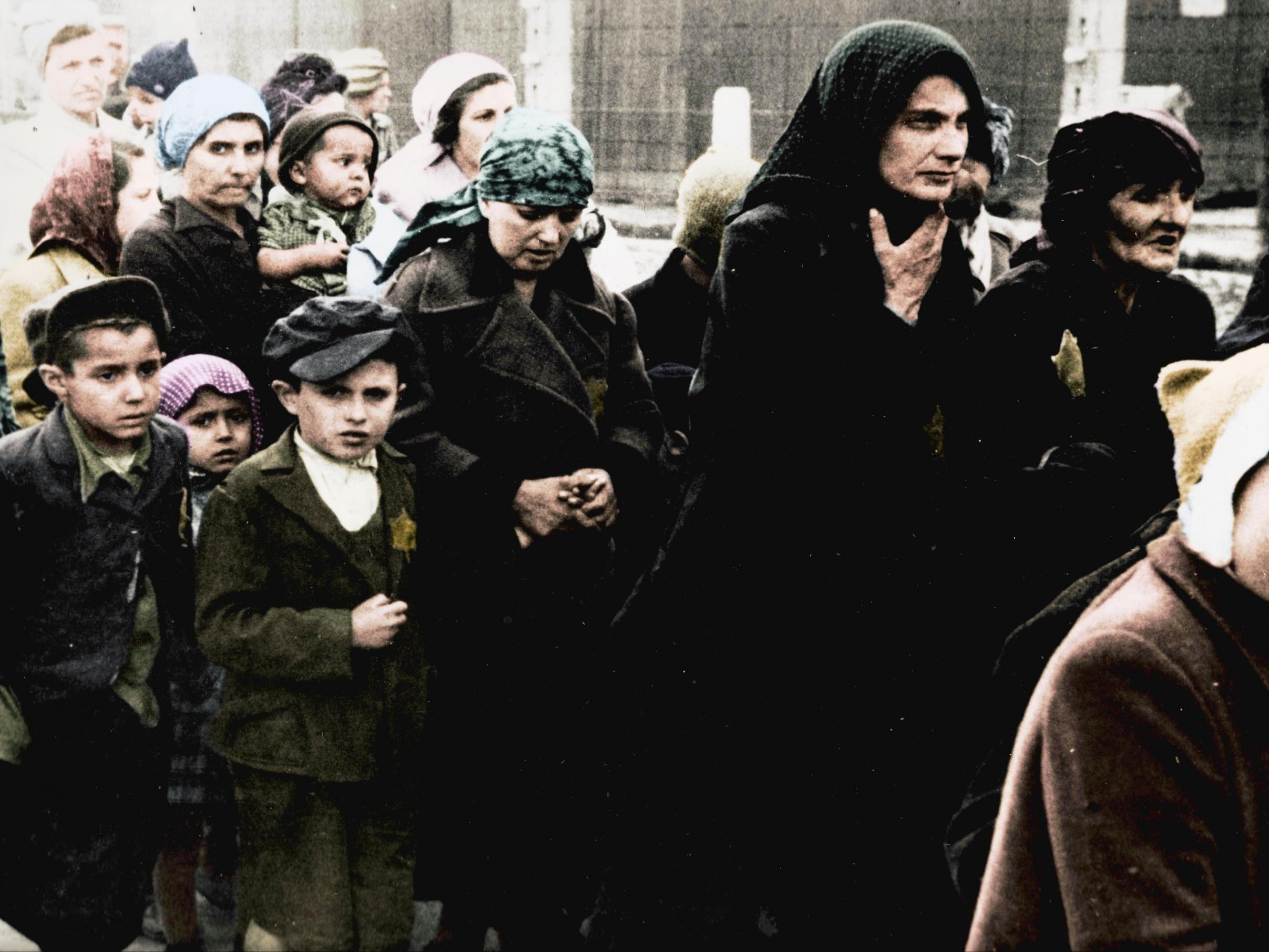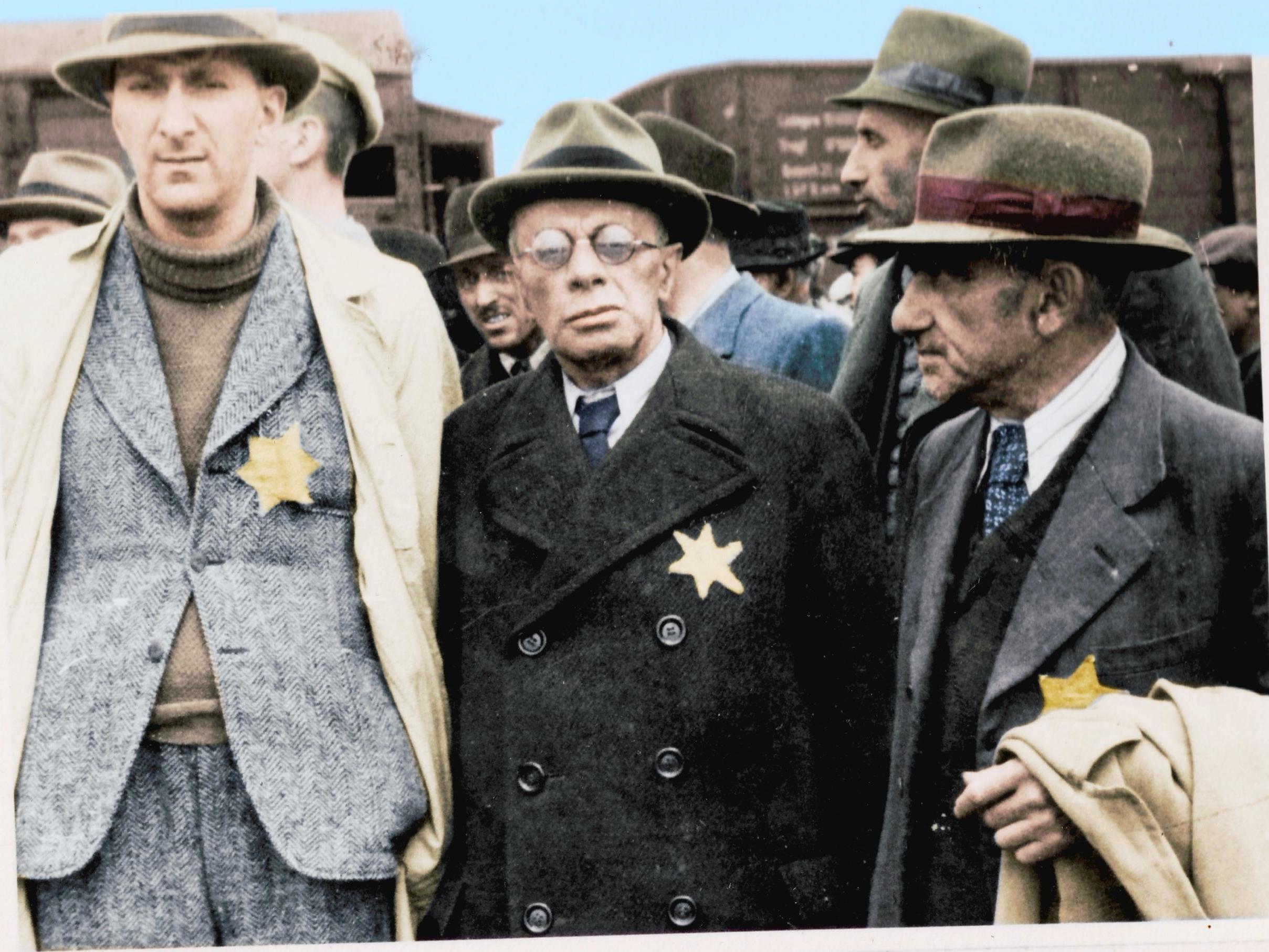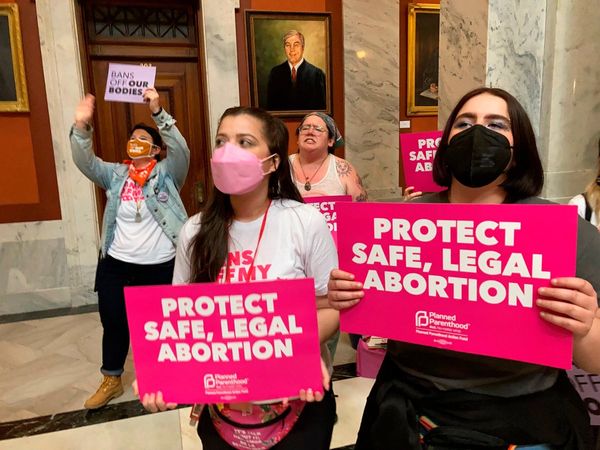An astonishing new documentary airing on Channel 4 on Wednesday night aims to convey the horrors of the Holocaust in a vivid new light.
Auschwitz Untold: In Colour recasts contemporary black-and-white news footage recorded after the Nazi concentration camp Auschwitz-Birkenau was liberated by Red Army soldiers in January 1945 in naturalistic colour, presenting the harrowing reality of the conditions endured by Jewish and Romani captives held behind its stone walls in fresh detail.
More than six million European Jews were systematically executed in camps like Auschwitz, Bergen-Belsen, Buchenwald and Dachau as part of Adolf Hitler’s Final Solution before the Allied victory brought an end to Nazi tyranny.
The programme was originally aired in two parts on More4 and commissioned to honour the 75th anniversary of the Auschwitz survivors’ deliverance.
It features interviews with 15 former inmates from Germany, France, Poland, Czechoslovakia and Hungary, including a resistance fighter who lost her entire family to the camps, and is narrated by the award-winning actor Sir Ben Kingsley.
“Once we entered there, we thought we’d entered hell,” one female survivor remembers of her ordeal in the film.
Another who has never spoken out before states that it has taken them “60 years to be able to talk about what happened there”.
While the late French director Claude Lanzmann, who made the seminal, nine-hour Holocaust documentary Shoah (1985), was vehemently opposed to reusing archive images of the Nazi genocide on the grounds that doing so only served to freeze the atrocities of the Second World War in time rather than acknowledging their lasting legacy, more recent films from Schindler’s List (1993) and Life is Beautiful (1997) to Son of Saul (2015) have used colour to illuminating effect.
Series like Channel 5’s World War II in Colour (2008) or Five Came Back (2017) on Netflix have both likewise used tinting and original interviews to bring the events of 1939-45 to life for a new generation.
But perhaps the clearest model here is Peter Jackson’s admired documentary They Shall Not Grow Old (2018), which colourised early footage and vintage photographs from the First World War to illustrate the experiences of young British troops in the trenches on the centenary of that brutal conflict’s close.
“We were wearing colours, we were not all in grey,” a survivor interviewed in Auschwitz Untold recalls, expressing approval of the decision to enhance the existing images.
“Colourisation couldn’t get the image closer to what it actually was,” another contributor agrees.

The series’ Bafta-winning director David Shulman says his intention in making Auschwitz Untold was to offer “as much contemporary resonance as possible”.
“The colourisation of black-and-white archives is one aspect of making this history more accessible to a younger audience and giving greater humanity to the people seen in the footage,” Shulman comments.

“Also, by including a Jewish resistance fighter from Vilna and a Roma holocaust survivor from France I think Auschwitz Untold: In Colour adds unique perspectives typically overlooked by most documentaries about the Holocaust.”
“We hope this series will help remove a barrier that separates contemporary audiences from the reality of the Holocaust so that we never ever forget the atrocities of the past,” adds producer Sheldon Lazarus.

The programme arrives as the world observes Holocaust Memorial Day, which commemorates not just those put to death by Nazi Germany but also victims of subsequent mass exterminations in Cambodia, Rwanda, Bosnia and Darfur.
Auschwitz Untold: In Colour is broadcast on Channel at 10.30pm on Wednesday 29 January 2020







